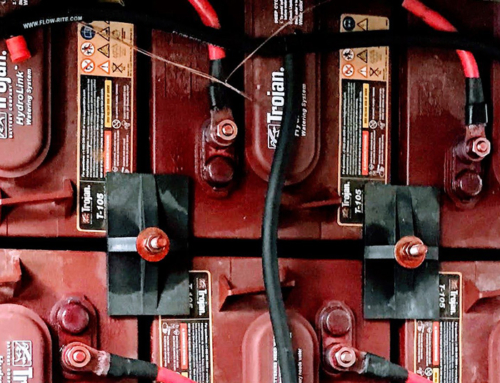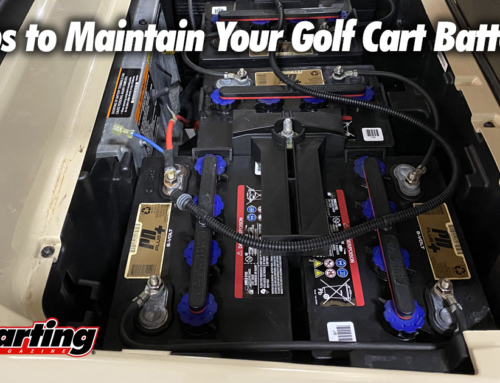This is a common question from golf cart owners looking to improve their vehicle’s performance. Whether converting their existing vehicle to an AC drive system or purchasing a new golf cart, the option to upgrade to a 72v lithium battery is tempting. In this article, we will discuss the performance advantages, compare pricing, and address possible safety concerns to shed some light on this often-asked question.
The most important thing to know when comparing 51v to 72v drive systems is that the 72v systems are far more efficient in every category when powering a small electric vehicle. Speed is ultimately determined by the motor and controller’s output capabilities, but an increase of 42.5% voltage in a 72v battery will result in higher top end speeds compared to the 51v. Even though the batteries being compared are both 105 amp-hour capacity rated, a 72v system will be far more efficient due to a 43.75% increase in Watt hours and therefore achieve much greater range per charge cycle. A 72v lithium battery in a four-seater golf cart under normal load can expect 60+ miles of range, compared to 40 miles from a 51v battery. However, as my good buddy Brandon Hudson says, “No one goes 73v for the range.” The increase in overall power and torque is what really stands out. Accelerating from 20 mph to however fast you feel comfortable going is exhilarating in a 72v system.
Regarding lithium battery pricing, a 72v – 105ah lithium golf cart battery will typically come to market about $1000 more than the 51v – 105ah battery. As the old saying goes, you must pay to play. If you want the baddest golf cart in your area of operation, then you need to pony up and get the 72v battery. The 72v lithium battery can also be a little more expensive to ship due to the total battery weight coming in just over the ground shipping to LTL threshold of 150 lbs., so make sure to ask about and factor in additional shipping costs.
Is it safe to upgrade my golf cart to a 72v system or purchase a new 72v vehicle? New 72v vehicles, normally 6+ seater passenger carts, small low-speed vehicles, or utility vehicles, are designed to safely operate at the power generated by a 72v motor and controller. For golf cart owners upgrading their existing 48v vehicles, the safety factors should be more of a concern. Obviously, the vehicle was designed for much lower power output, and there will be a considerable amount of additional force on parts and welds, which can easily compromise older parts. More importantly, the two rear drum brakes that come stock on most 48v golf carts will not be able to properly stop a vehicle traveling 25 mph or more. Also consider, the additional power paired with the lighter weight of the lithium battery can also add to the instability of the vehicle at higher-than-average speeds. Lastly, the craftsmanship and routine maintenance of an upgraded vehicle must be made a top priority. It is highly recommended to identify failing or loose parts during an inspection rather than experiencing a component failure at high speeds.
In summary, I have had both 51v and 72v lithium batteries in my personal cart paired with an AC drive system, and I must say both will blow your hair back. The 51v lithium battery and AC drive system can achieve great ranges, speeds, and generate enough torque to lift a golf cart’s front tires in the air. A 72v drive system is going to operate much more efficiently and can achieve 30% higher performance, depending on the motor and controller’s output. Safety should be a top concern for anyone interested in upgrading their existing 48v system to 73v. As Uncle Ben in Marvel’s Spider-Man said, “With great power comes great responsibility.” There isn’t a better quote that sums up whether you should upgrade to 72v or not. Stay safe out there.






